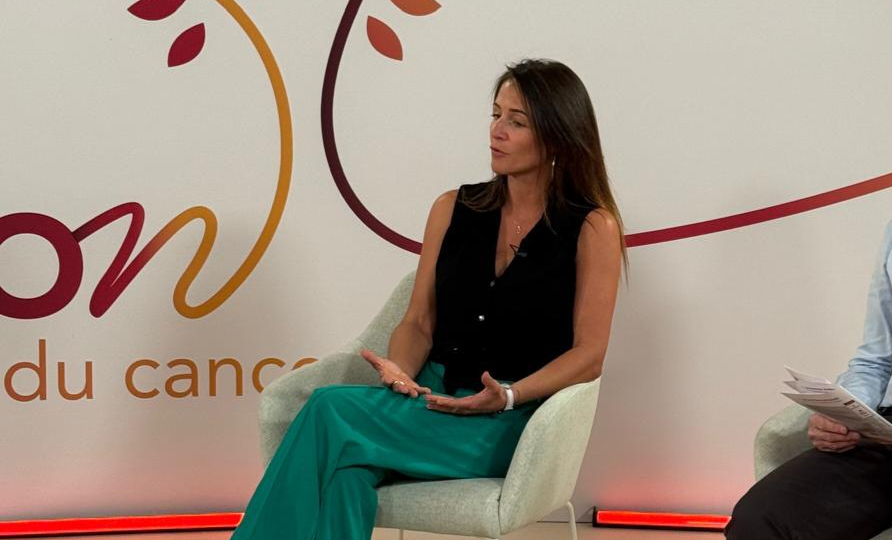Profile of Alice Gros, a peer-support patient in the Adolescent and Young Adult Unit at Saint-Louis


My name is Alice, I am 36 years old, and I am a biosciences engineer. I was diagnosed with leukemia (B-cell acute lymphoblastic leukemia) when I was 13, and I was followed at Saint-Louis Hospital in pediatric hematology for 15 years.
After experiencing life as a patient, I also experienced the role of a caregiver when my grandmother had cancer, a challenge I found particularly intense and difficult.
After all these years of follow-up, I decided to get involved and share my story to help improve the patient care pathway.
I recount my journey and what I have learned in a book, “La mort a posé sa main sur mon épaule” (“Death Placed Its Hand on My Shoulder”), where I describe my path through these challenges—my relationship with my body, with others, with death, communication with healthcare staff and loved ones, the need to be understood and supported, finding peers, and how learning to know myself has helped me, among other reflections.
How did you become a patient partner?
I took a training program co-created by the Aïda association and Sciences Po Executive titled “Being a Young Patient and Engaging in Health”. The goal of this program is to turn personal experience into expertise, acquire knowledge in health democracy, gain technical understanding of our illness, study public speaking and advocacy, and take a step back from our experience to be able to share our story in a structured way.
Why do you want to be a patient partner?
I want to be a patient partner for several reasons: first, to be present for patients and their loved ones, to support them, answer their questions, and guide them to others who can help. Second, to help healthcare professionals improve patient care by explaining, for example, what I sometimes found lacking. I want to be useful and for my life experience to benefit the entire ecosystem: patients, caregivers, and healthcare providers.
The PAROLE-Onco project is a Quebec initiative aimed at integrating peer-support patients (PSPs) into oncology care pathways. These PSPs, who have themselves experienced cancer, provide emotional, informational, and educational support to other patients going through similar situations.
The goal is to improve the patient experience by providing personalized support, foster patient-professional partnerships by incorporating the experiential knowledge of PSPs into clinical teams, and evaluate the program’s impact on the quality of care, the well-being of patients and healthcare professionals, and the overall efficiency of the healthcare system.
How did you participate in co-constructing the project?
The project is divided into two phases: the co-construction phase lasting one year, during which we met with all project stakeholders (hospital staff, researchers, and patients) to collectively discuss the specific needs related to cancer care, tailored to each department, and to identify key phases and moments where the presence of a PSP is essential (e.g., diagnosis announcements, treatment explanations, etc.).
What will your role in the department consist of?
For my part, I will be working in the AYA oncology unit at Saint-Louis. I will be present two half-days per week, and together with the healthcare staff, we will define the key moments where my presence will be particularly valuable, such as during the delivery of a diagnosis.
Young patients and their families will be able to speak with me whenever they wish, ask questions, and share their feelings, concerns, and fears. I can support them with my experience and also guide them to other professionals as needed. Listening, guiding, and providing additional support are responsibilities that are particularly close to my heart.
I hope to provide what I lacked during my own experience and help them identify with someone who has been through the same journey.
Being involved in this type of project makes me feel useful, and I hope to contribute to improving the care pathway for cancer patients.